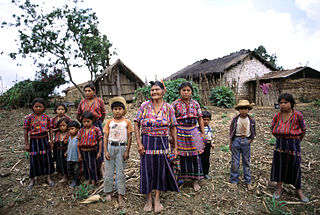
Indigenous peoples are the descendants of the earliest known inhabitants of a territory that has been colonized. Indigenous peoples have endured domination and control by a colonial mainstream society. Indigenous peoples have different cultures and languages from the ones of the dominant colony, specially in terms of their ancestral relation to the land in question, and their dependence on it for their cultural and material continuity. The term Indigenous lacks a single, authoritative definition and can be used to describe a variety of peoples and cultures. In its modern context, the term Indigenous was first used by Europeans, who used it to differentiate the Indigenous peoples of the Americas from the European settlers of the Americas, as well as from the sub-Saharan Africans the settlers enslaved and brought to the Americas by force. The term may have first been used in this context by Sir Thomas Browne in 1646, who stated "and although in many parts thereof there be at present swarms of Negroes serving under the Spaniard, yet were they all transported from Africa, since the discovery of Columbus; and are not indigenous or proper natives of America."

During the Age of Discovery, a large scale colonization of the Americas, involving a number of European countries, took place primarily between the late 15th century and the early 19th century. The Norse had explored and colonized areas of Europe and the North Atlantic, colonizing Greenland and creating a short term settlement near the northern tip of Newfoundland circa 1000 AD. However, the later colonization by the European powers involving the continents of North America and South America is arguably more well-known.
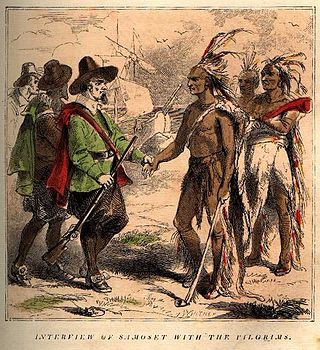
The colonial history of the United States covers the period of European colonization of North America from the early 17th century until the incorporation of the Thirteen Colonies into the United States after the Revolutionary War. In the late 16th century, England, France, Spain, and the Dutch Republic launched major colonization expeditions in North America. The death rate was very high among early immigrants, and some early attempts disappeared altogether, such as the English Lost Colony of Roanoke. Nevertheless, successful colonies were established within several decades.

The governments of the Thirteen Colonies of British America developed in the 17th and 18th centuries under the influence of the British constitution. After the Thirteen Colonies had become the United States, the experience under colonial rule would inform and shape the new state constitutions and, ultimately, the United States Constitution.
A colonial mentality is the internalized attitude of ethnic or cultural inferiority felt by people as a result of colonization, i.e. them being colonized by another group. It corresponds with the belief that the cultural values of the colonizer are inherently superior to one's own. The term has been used by postcolonial scholars to discuss the transgenerational effects of colonialism present in former colonies following decolonization. It is commonly used as an operational concept for framing ideological domination in historical colonial experiences. In psychology colonial mentality has been used to explain instances of collective depression, anxiety, and other widespread mental health issues in populations that have experienced colonization.
Cultural assimilation is the process in which a minority group or culture comes to resemble a society's majority group or assimilate the values, behaviors, and beliefs of another group whether fully or partially.

Paul Samuel Reinsch, was an American political scientist and diplomat. He played an influential role in developing the field of international relations.

The historical phenomenon of colonization is one that stretches around the globe and across time. Ancient and medieval colonialism was practiced by the Phoenicians, Greeks, Turks, and Arabs.
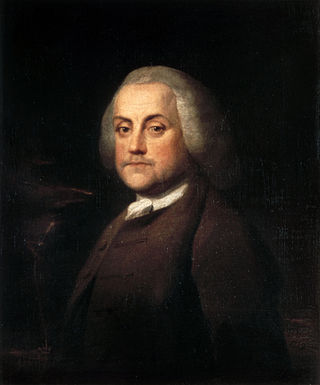
The Albany Plan of Union was a rejected plan to create a unified government for the Thirteen Colonies at the Albany Congress on July 10, 1754 in Albany, New York. The plan was suggested by Benjamin Franklin, then a senior leader and a delegate from Pennsylvania. Franklin spent much time among the Iroquois observing their deliberations and pleaded with the colonial leaders to consider the plan. More than twenty representatives of several Northern Atlantic colonies had gathered to plan their defense related to the French and Indian War (1754–1763), the front in North America of the Seven Years' War between Great Britain and France, spurred on by George Washington's recent defeat in the Ohio valley. The Plan represented one of multiple early attempts to form a union of the colonies "under one government as far as might be necessary for defense and other general important purposes." The plan was rejected but it was a forerunner for the Articles of Confederation and the United States Constitution.
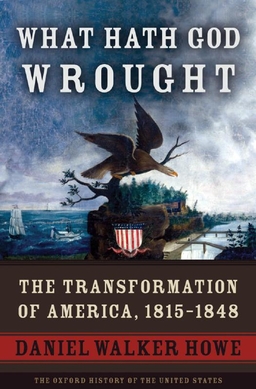
What Hath God Wrought: The Transformation of America, 1815–1848 is a Pulitzer Prize–winning book written by historian Daniel Walker Howe. Published in 2007 as part of the Oxford History of the United States series, the book offers a synthesis history of the early-nineteenth-century United States in a braided narrative that interweaves accounts of national politics, new communication technologies, emergent religions, and mass reform movements. The winner of multiple book prizes, including the 2008 Pulitzer Prize for History, reviewers widely praised What Hath God Wrought. Historian Richard Carwardine said it "lays powerful claim to being the best work ever written on this period of the American past".

An independence referendum was held in Liberia on 27 October 1846. The result was 52% in favor, with independence being declared on 26 July 1847.

Settler colonialism occurs when colonizers invade and occupy territory to permanently replace the existing society with the society of the colonizers.
William B. Taylor is a historian of colonial Mexico, who held the Sonne Chair of History at University of California, Berkeley until his retirement. He made major contributions to the study of colonial land tenure, peasant rebellions, and many aspects of colonial religion in Mexico. In 2007 he received the Distinguished Service Award of the Conference on Latin American History, the highest honor of the professional organization of Latin American historians.
Samuel W. Mitcham Jr. is an American author and military historian who specializes in the German war effort during World War II and the Confederate war effort during the American Civil War. He is the author of more than 40 books and has collaborated with other historians such as Gene Mueller.
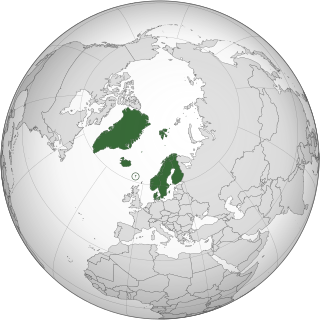
Nordic immigration to North America encompasses the movement of people from the Nordic countries of Sweden, Denmark, Norway, Iceland, and Finland to the North America, mainly the United States and Canada, from the 17th to the 20th centuries. These immigrants were drawn to the New World by factors ranging from economic opportunities to religious freedom and challenges in their native lands. Their legacy has significantly shaped the cultural, social, and economic landscape of the Americas.

Fijian nationality law details the conditions by which a person is a national of Fiji. The primary law governing nationality requirements is the Citizenship of Fiji Act 2009, which came into force on 10 April 2009.

Early American publishers and printers played a central role in the social, religious, political and commercial development of the Thirteen Colonies in British America prior to and during the American Revolution and the ensuing American Revolutionary War that established American independence.
Indigenous responses to colonization vary widely depending on the specific group of people, the historical period, the territory, and the colonial state(s) they were interacting with. Indigenous peoples have had agency and some degree of choice in the course of the colonial history. Some employed armed resistance, while others used diplomatic means to negotiate positive outcomes, some used the legal system, and some fled to remote inhospitable or remote territories to try to avoid conflict. Nevertheless, some Indigenous peoples were forced to move to reservations or reductions, others were massacred, others were forced to work in mines, plantations, construction, and domestic work, to name a few. Finally, others were manipulated to detribalize and culturally assimilate into Western-dominated societies. Indigenous peoples have formed alliances with one or more Indigenous or non-Indigenous nations. Overall, the responses of Indigenous peoples to colonialism during this period have been diverse and varied in their effectiveness. Indigenous resistance has a history that is long, complex, and still under development and being written.

Fix Our House is an American nonprofit electoral reform organization that advocates for instituting proportional representation(PR) in the House of Representatives. The organization views PR as a solution to polarization, gerrymandering, safe and uncontested seats, and hyper-partisan primaries. The group has ties to the anti-filibuster Fix Our Senate.














